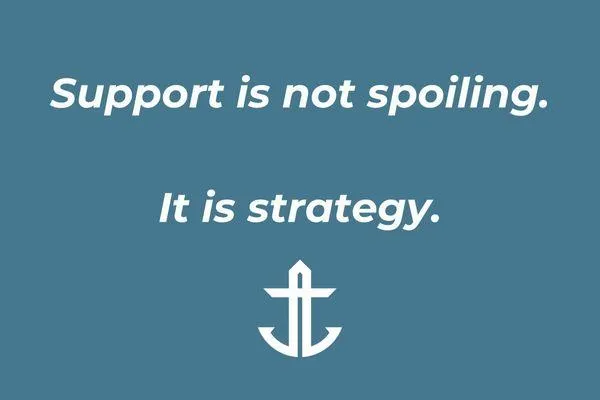
What ADHD Support Actually Looks Like
What ADHD Support Actually Looks Like
Anchored Insights
Children who struggle with follow-through, focus, or emotional regulation are often misunderstood. They may be called “lazy,” “defiant,” or “unmotivated” when the real issue is a lagging skill and not a character problem.
When executive function is still developing, kids don’t need more pressure. They need structure, modeling, tools, and time to practice. Support isn’t spoiling. It is strategy.
Correcting a child for something their brain is not yet wired to do does not create change. Coaching builds the skills they are missing.
A Real Example: Homework Battles
A child who avoids homework or falls apart before starting is not being dramatic. They may be overwhelmed by one or more executive function challenges:
Task initiation
Working memory
Organization
Frustration tolerance
When the response is correction alone, such as “Just get started” or “You know how to do this,” nothing changes.
When the response supports the lagging skill, everything shifts:
“Let’s do the first step together.”
“I’ll sit with you for two minutes while you get started.”
“Let’s set a short timer.”
This is not rescuing or overindulgence. It is developmentally appropriate scaffolding. As skills strengthen, the support can fade.
Parents Are Not the Problem
If you have repeated directions, lost patience, or wondered why your child “should know this by now,” you are not alone. These struggles are not about willpower or personality. They are about brain wiring, stress responses, and missing skills.
The good news is that executive function can improve with the right approach. Coaching works better than correction because it builds capacity instead of triggering shame, shutdown, or resistance.
Want to Learn the How?
Executive Function 101: A Parent Session
You will learn:
Why consequences and correction do not create lasting change
How to reduce stress at home and school
Strategies that build follow-through and confidence
What skill-building looks like in everyday life
➡ Register here: EF Webinar
When kids struggle, parents often feel like they are failing too. You are not failing. You are being asked to support skills no one taught you to recognize.
With the right tools and perspective, stress goes down and confidence goes up for both kids and families.
